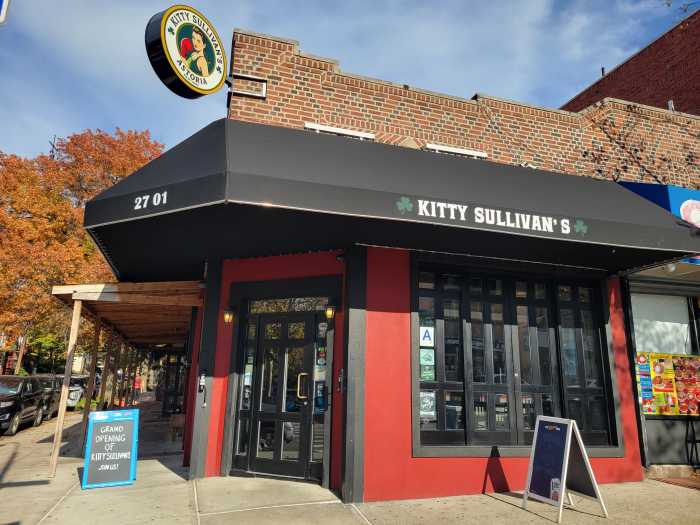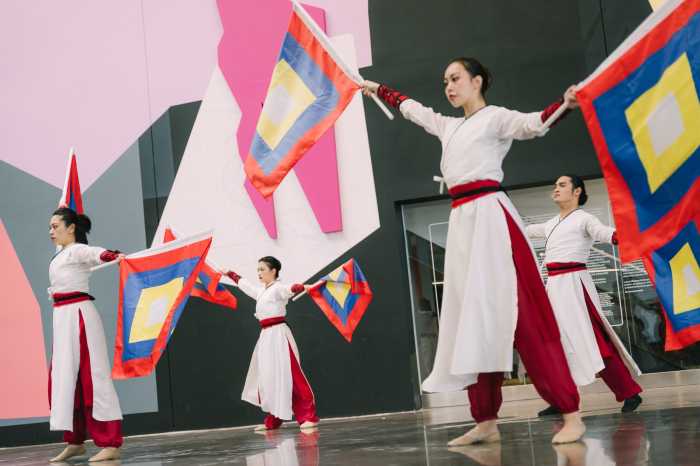By The Greater Astoria Historical Society
Born March 1, 1927, at the Lying-in Hospital in Harlem, Harold George Bellafanti Jr. is a singer, actor and political and civil rights activist whose unforgettable presence on the American stage has spanned seven decades.
Better known as Harry Belafonte, the King of Calypso popularized the musical genre and broke through the pop charts in 1956 with his signature hit “The Banana Boat Song.” As a film actor, the New York native has appeared on screen with generations of greats, from Sidney Poitier to John Travolta.
His lifelong struggle against racism, injustice and poverty has taken him from the island of Jamaica to the 1963 civil rights march alongside Dr. Martin Luther King Jr. and again overseas to such places as Cuba and sub-Saharan Africa.
In his 87th year, the performer and activist still lives in New York City. He has four children, three of whom followed their father into acting.
In 1932, the future celebrity was sent to Jamaica to live with his maternal grandmother. It was there that he experienced firsthand the bitterness of racial injustice at the hands of British colonial authorities, a fire that he would carry with him for the rest of his life.
After returning to the city, however, the young man drifted, serving in the U.S. Navy in the waning months of World War II and taking odd jobs. But it was not long before he heard his calling after attending a performance of the American Negro Theater. Here he met Poitier and began studying acting alongside such names as Marlon Brando, Tony Curtis and Walter Matthau.
Living in East Elmhurst at the time, Belafonte went on to appear on television and in more than 30 films and documentaries.
In the late 1940s, the Queens resident simultaneously set out on his music career, if only to pay for his acting classes. The first time he performed, he appeared with the Charlie Parker band, which included names such as Parker himself, Max Roach and Miles Davis. He quickly developed an interest in folk music, with the “Banana Boat Song” and its joyful day-o shout earning him lasting vocal fame.
Belafonte recorded two million-selling albums and performed at President John Kennedy’s inaugural ball in 1961. A great talent himself, this New Yorker was also one to recognize other up-and-comers. His 1962 collection “Midnight Special” marked the record debut of a youthful harmonica player from Minnesota named Bob Dylan.
The 1960s were a time of great social change and activism in the United States. Harry Belafonte took the fight to our nation’s capital in 1963 and opened his wallet the following year to help fund the Freedom Summer voter registration drive in Mississippi. Through it all, Belafonte did not back down from controversy in his struggle for equality.
Belafonte last appeared in concert in 2003, and in 2007 he announced that he was retired from performing.
But even after more than 50 years of acting, singing and activism, the prodigy from the streets of New York is not ready to go quietly. He remains outspoken about domestic politics and human rights overseas, and courted controversy during the George W. Bush administration by comparing fellow African-Americans Colin Powell and Condoleezza Rice to Uncle Tom figures from the days of slavery.
In his 87 years, Belafonte has sung his way into the hearts of ordinary Americans, entertained and challenged us on television and the silver screen and spoke for those the world over who had no voice.
For more information, call 718-278-0700 or visit astorialic.org.


































